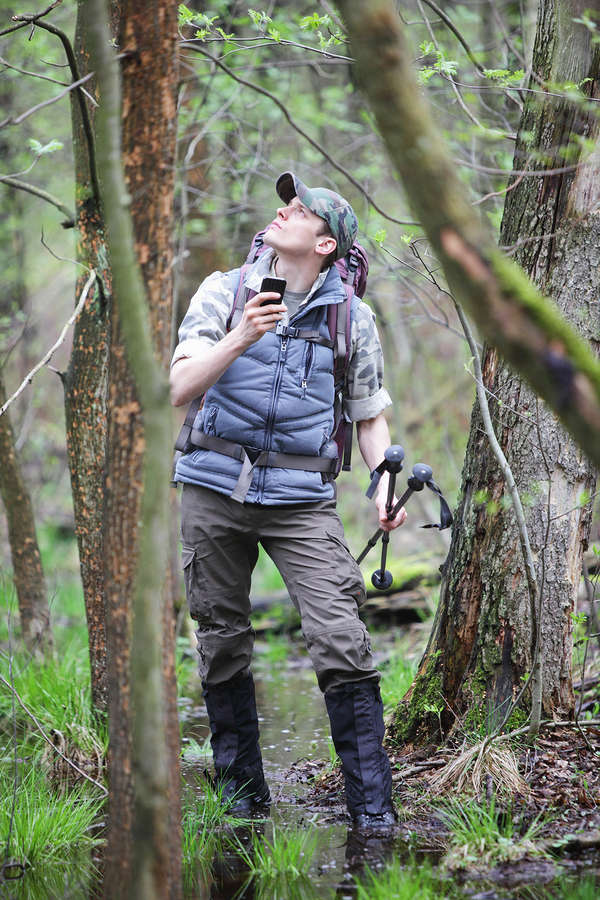When you’re out camping, hiking or even driving in an unknown area, it’s possible to become lost. This chance increases the farther away you are from familiar territory. Before you set out on any road trip or adventure into the wilds, it’s always best to be prepared. Let someone know where you’re going and when you’ll be back. Carry a basic set of supplies, like a basic survival kit, so that you always have a minimum amount of survival gear with you even if you only plan on being gone a couple of hours.
Even if you are familiar with the location, you could get injured and unable to obtain help. It’s best to have items with you if you are isolated and unable to find help.
Many times, people are embarrassed to admit that they are lost, and this often gets them into worse trouble. Once you realize you are or might be lost, the key is to STOP and think before taking action.
The key here is STOP. Not only is it a good first step, but it’s also an acronym that can help you:
S – Stop
T – Think
O – Observe
P – Plan
STOP – Once you realize that you are lost, or even if you’ve become unsure of where you are, stop for a few minutes. Either stop on the trail or safely pull over to the side of the road. Look around and see if you recognize anything familiar and can get your bearings. If not, take a deep breath. Maybe even sit down for a while. If you feel yourself starting to panic, get your mind involved with something else, like taking a drink of water or nibbling on some food. Maybe hum a song or start talking out loud to yourself. Whatever trick you need to do in order to keep yourself from overreacting and give yourself some time to think about your situation. When teaching this to small children, teach them to stay put and “hug a tree,” as long as it’s safe to do so.
THINK – Now that you’ve calmed down and the initial fear phase has passed, you should be able to think more clearly. Think: are you really lost or have you just stepped off the trail a little. Do you remember taking a fork in the street when you were getting your iPod out? When was the last time you remember knowing where you were?
OBSERVE – If you are still unsure of where you are, it’s time to observe. Turn off the music and closely look around you. Look back where you just came from, does anything look familiar? Do you see any landmarks in the distance that would tell you approximately where you are? Do you remember any details of where you had just been? Were you taking pictures that you can look at on your camera? Anything that might spark some recognition of how you got to the location where you are now.
If you have a map, compass or GPS, consult them to determine your location. Hopefully, you can figure out the general location of where you are and which direction you need to go to get back.
PLAN – Unless you know exactly where you are and where to go, don’t just start out again. At this point, you are in a survival situation and need a plan. If you are with other people, start talking and figuring out what you’re going to do. Your plan needs to account for things like the time of day, weather conditions, what gear you have, and whether someone knows where you are.
Check to see if your cell phone is in range. It would be far simpler to contact emergency services while you are able than it is to walk further away and possibly lose coverage. Your best course of action may be to use the remaining daylight to set up a camp and gather firewood. Walking around in the dark is a sure way to get hopelessly lost and injured.
Following the steps above, you will be in a much better position to think your way out, or remain safe until help is found.
This tip was brought to you by the Preparedness Podcast and was written by Rob Hanus. Feel free to share it with your friends and family.
Rob Hanus is the author of the book “The Preparedness Capability Checklist” which is an easy-to-read-and-follow guide that is full of the most efficient methods for intelligent and deliberate prepping. Rob is also host of the Preparedness Podcast.
You can get the Rob’s book here:
http://www.thepreparednesspodcast.com/capability-checklist/
Tune into Rob’s podcast here:
http://www.thepreparednesspodcast.com/preparedness-podcast/
Marjory Wildcraft is an Expedition Leader and Bioneer Blogger with The [Grow] Network, which is an online community that recognizes the wisdom of “homegrown food on every table.” Marjory has been featured as an expert on sustainable living by National Geographic, she is a speaker at Mother Earth News fairs, and is a returning guest on Coast to Coast AM. She is an author of several books, but is best known for her “Grow Your Own Groceries” video series, which is used by more than 300,000 homesteaders, survivalists, universities, and missionary organizations around the world.







